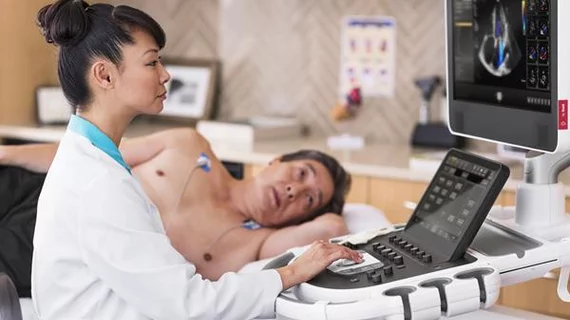Philips updates, expands cardiac ultrasound platform
Philips Healthcare has rolled out the latest update for its EPIQ CVx and EPIQ CVxi cardiac ultrasound systems, expanding to include automated applications for 2D assessment of the heart and robust 3D measurements of right ventricular volume and ejection fraction.
The ultrasound systems’ 5.0 release reportedly makes CV exams more accurate, faster and easier to conduct, according to a statement from the company. While the technology was initially tailored for use in interventional labs, the system can now also be used in the echo lab.
“The complexity of cardiac exams can be a barrier to accessing high-quality care,” David Handler, general manager of cardiac ultrasound at Philips, said in the statement. “Philips is addressing this by leveraging artificial intelligence to make echo exams easier, faster and more reproducible. By incorporating advanced automation, there is less variability between scans, leading to accurate treatment decisions which benefit patients.”
Handler called the latest update “a major step forward.” He said it reduces the number of touches to the system by 21% per exam, translating to more than 400 exams per year.
A few new applications, including the AutoStrain LV, AutoStrain LA and AutoStrain RV functions, allow physicians to study the heart from different angles and assess ventricular function with high reliability, making diagnostics more accurate. The 3D Auto RV application identifies the borders of and aligns the views of a patient’s right ventricle, enabling cardiologists to carry out quantification and check measurements in as little as 15 seconds.
Philips said in its statement the latest EPIQ CVx and EPIQ CVxi release makes the tech more accessible to other fields, like cardio-oncology. The company will officially unveil its 5.0 update at the annual meeting of the American Society of Echocardiography (ASE) in Portland, Ore., starting June 21.

